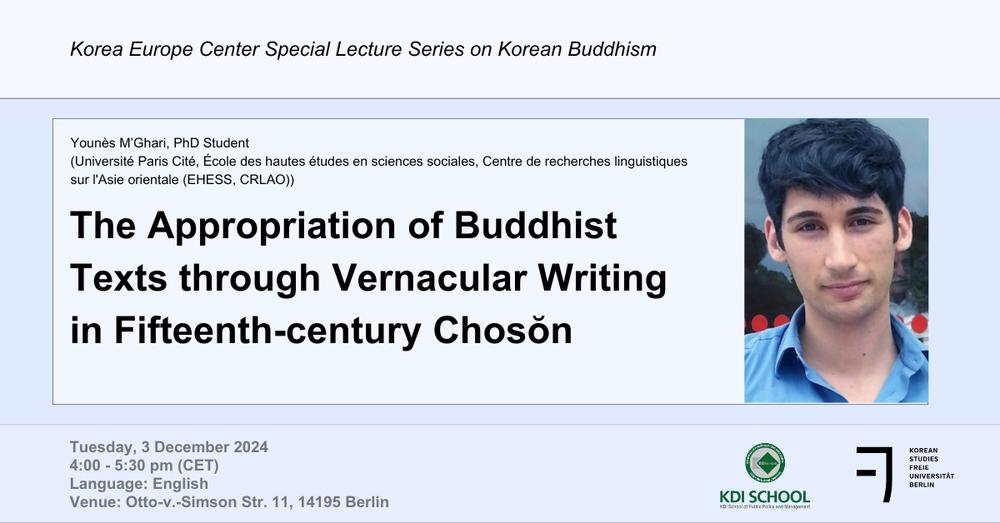The Appropriation of Buddhist Texts through Vernacular Writing in Fifteenth-century Chosŏn
Younès M’Ghari, PhD Student
(Université Paris Cité, École des hautes études en sciences sociales, Centre de recherches linguistiques sur l'Asie orientale (EHESS, CRLAO))
Lecture
Buddhism, which originated in northern India around the 5th-6th century BCE and reached the Korean peninsula at the end of the 4th century CE, was accessible in written form until the mid-15th century through (1) imported, copied or locally authored texts in Literary Sinitic (hanmun 漢文), as well as versions of these texts with added intercalary annotations kugyŏl 口訣 / t'o 吐 (most notably, sinographic inscriptions indicating Korean particles and endings to facilitate the interpretation of these texts). The promulgation by king Sejong (r. 1418-1450) of a new vernacular script (hunmin chŏngŭm 訓民正音) in 1446 led to numerous new publications related to Buddhism, some possibly purely ritualistic, and other ones more pedagogical. The present lecture proposes an introduction and classification of these documents, which were published between 1447 and 1496, according to their distinctive writing characteristics, focusing on two levels of analysis: the narration of the text and the lexicon it conveys.
About the lecturer
Younès M’Ghari is a specialist in the fields of Korean language and literature with a focus on early middle Korean language vernacular publications.
Zeit & Ort
03.12.2024 | 16:00 c.t. - 17:45
Otto-von-Simson Straße 11, 14195 Berlin, Germany

